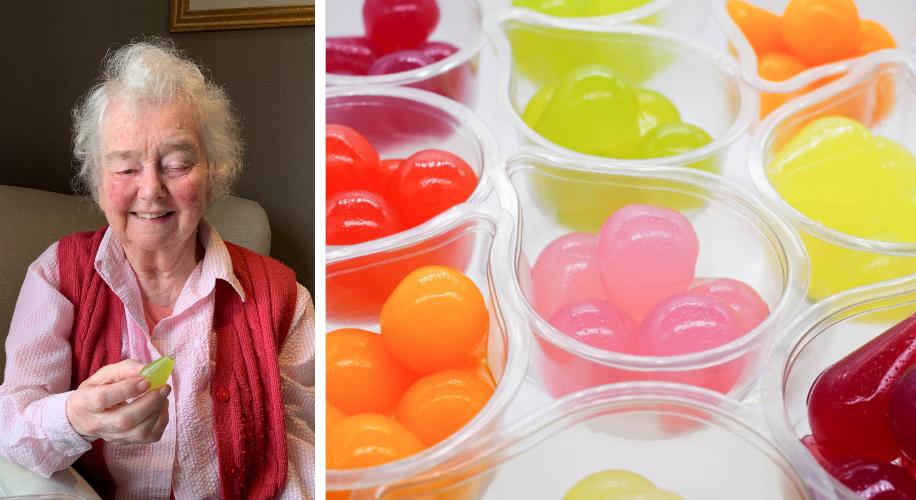During heat waves like the one these days (hoping it's the last of the year) hydrating the body is essential, and those suffering from dementia or related diseases such as Alzheimer's risk not doing so. Ensuring adequate fluid intake can become a challenge if you struggle with memory.
These Jelly Drops, authentic "water bonbons", have been specifically designed to help people with dementia drink when needed and as much as needed.
The challenge of hydration in dementia
Conditions that lead to dementia, and in particular Alzheimer's disease, represent one of the major health challenges of our time. The WHO estimates that there are 55 million people worldwide forced to live with the insidious complications of dementia. One of the worst is the loss of thirst perception, the inability to remember or understand when to hydrate. During heat waves, such as those that have recently hit Europe (in particular Italy, which was hit in full in the month of July) the risk of dehydration increases significantly.

Jelly Drops: sweet solution
I jelly drops they contain 95% water and are enriched with electrolytes to better hydrate the body. Not only are they sugar-free, but their colorful and inviting appearance makes them an attractive option even for those who might otherwise refuse to drink.
The idea behind these bonbons came from the creative mind of the Englishman Lewis Hornby. The inspiration? As often happens in the family: from her own grandmother, Pattinson, who had the problem of remembering when and how much to drink.
Hydrate, and proudly. But that's not enough, of course
While Jelly Drops offer a practical and immediate solution to address the problem of hydrating people with dementia, the scientific community does not stop and continues to look for more focused treatments to address the root problem.
Recently a new drug, called lecanemab, has been shown to reduce memory and thinking decline associated with Alzheimer's. This drug attacks protein clumps in the brain that many believe cause the disease.
For more details on recent lecanemab research and other developments in the field of dementia, please visit this article.
While the results are promising, it's important to note that the drug's benefits are small so far and accompanied by significant side effects. However, research in this field is constantly evolving and each new development brings hope.
Dementia is one of the major healthcare challenges of our time, with 10 million new cases diagnosed each year. With the number of dementia cases projected to rise to 78 million by 2030 and 139 million in 2050, the race is on for scientific developments and research that will help us understand, treat and possibly prevent the disease.


